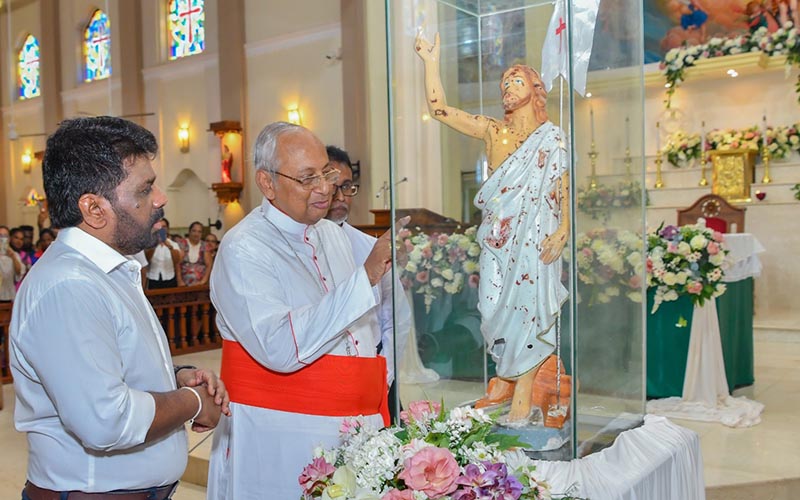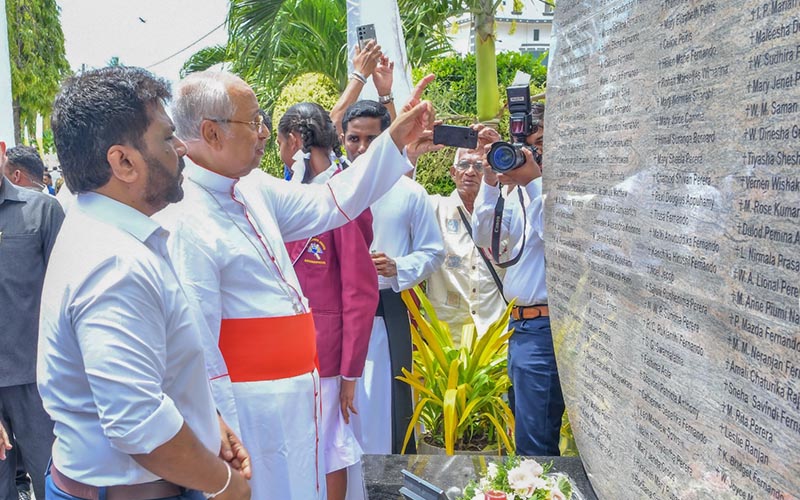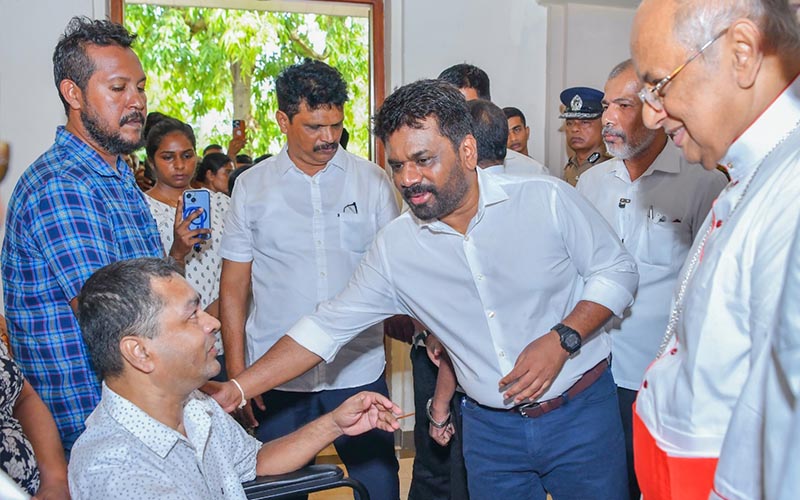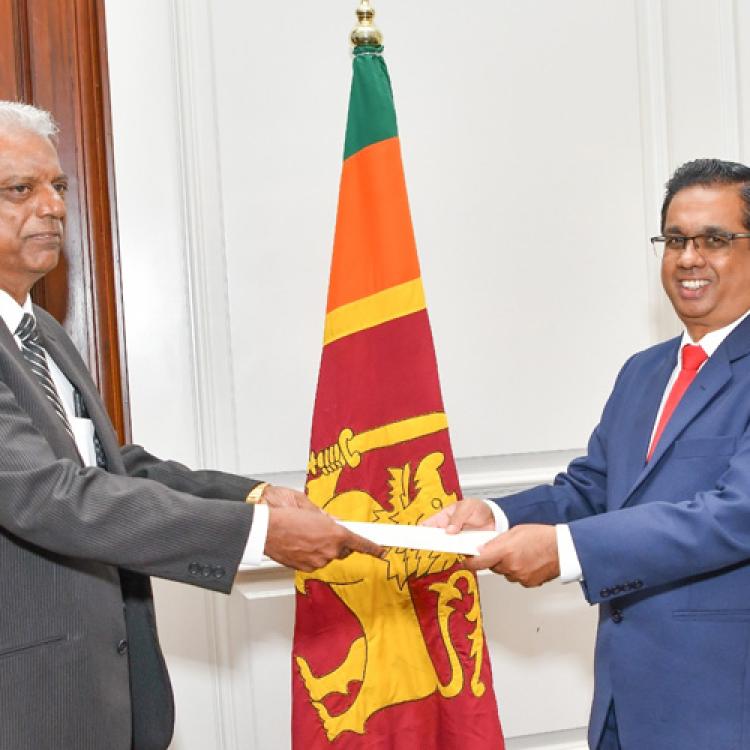
Anura Kumara Dissanayake vowed to expedite investigations into the 2019 Easter Sunday bombings this week, as he visited the site of the attacks and was confronted by relatives of the victims.
Dissanayake’s pledge to serve justice for the bombings however stands in stark contrast to his stance on atrocities committed against the Tamil people, where he was vowed not to punish perpetrators of rights abuses and this week met with accused war criminals.
On a visit to St. Sebastian’s Church in Negombo, one of the attack sites, Dissanayake stressed the importance of a fair and impartial investigation, acknowledging widespread suspicion that the bombings, which killed nearly 274 people, may have been politically motivated.

Many in Sri Lanka's Christian community, as well as the broader public, share this belief, with several reports and former officials stating the security services were aware that an attack was imminent. Sri Lanka’s own Parliamentary Select Committee (OSC) raised concerns that Sri Lanka’s security forces had permitted the attack to “create chaos and instil fear” ahead of the 2019 presidential elections which saw the ascendancy of Gotabaya Rajapaksa.
The Channel 4 documentary on the matter also supported this claim and spoke with Sri Lanka’s former director general of police, Ravi Seneviratne, who claimed that Gotabaya Rajapaksa had acted to “prevent the investigation”. The documentary further alleges that an intelligence officer with close ties to the Rajapaksa clan met with the members of the local islamist group, National Thowheeth Jama’ath (NTJ), which carried out the attack. Abeysekera also claimed that one of the suicide bombers, who died in Dehiwela, had ties to Sri Lanka’s military intelligence.
According to the President's Media Division, Dissanayake assured that restoring public trust and eliminating political interference in the investigation are top priorities. He also praised religious leaders for their role in easing tensions in the aftermath of the attacks, which targeted churches and hotels on Easter Sunday.

Dissanayake was however confronted by at least one angry relative of the Easter Sunday victims during his visit.
Doubts about the President's sincerity have emerged, particularly in light of his appointment of Seneviratne as Secretary of the Public Security Ministry. Seneviratne, a former senior officer in the Criminal Investigation Department (CID), oversaw the agency during the time of the attacks. His appointment is seen by many as contradictory to Dissanayake’s pledge for transparency, as Seneviratne is currently implicated in a court case that accuses him and another former CID officer, Shani Abeysekara, of ignoring prior warnings about the bombings. Both men have denied the accusations, with Seneviratne claiming that Rajapaksa’s government obstructed the investigation into the attacks. He has even petitioned the Supreme Court to prevent his arrest.
The decision to place Seneviratne in such a powerful security role has been met with criticism. Detractors argue that his involvement could compromise the ongoing investigation, as he now holds direct authority over the police and security forces. This raises concerns about a potential conflict of interest, casting doubt on the impartiality of the probe and fuelling fears of further interference in an already controversial investigation.
Additionally, Seneviratne’s personal track record has not helped ease public concerns. He was involved in a high-profile drunk driving incident in 2023, resulting in a crash on Marine Drive in Colombo. Despite these controversies, Seneviratne has aligned himself with Dissanayake’s National People’s Power (NPP) party, presenting himself as a reformer dedicated to restoring the rule of law.

